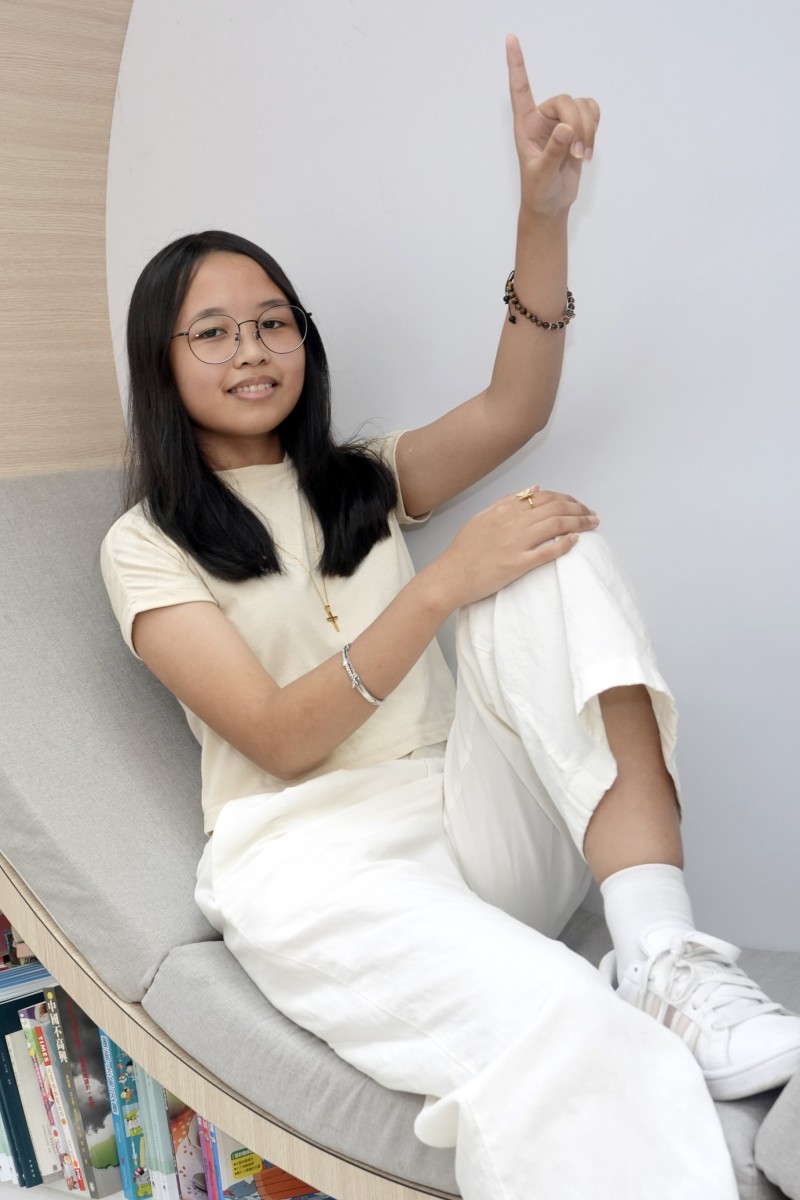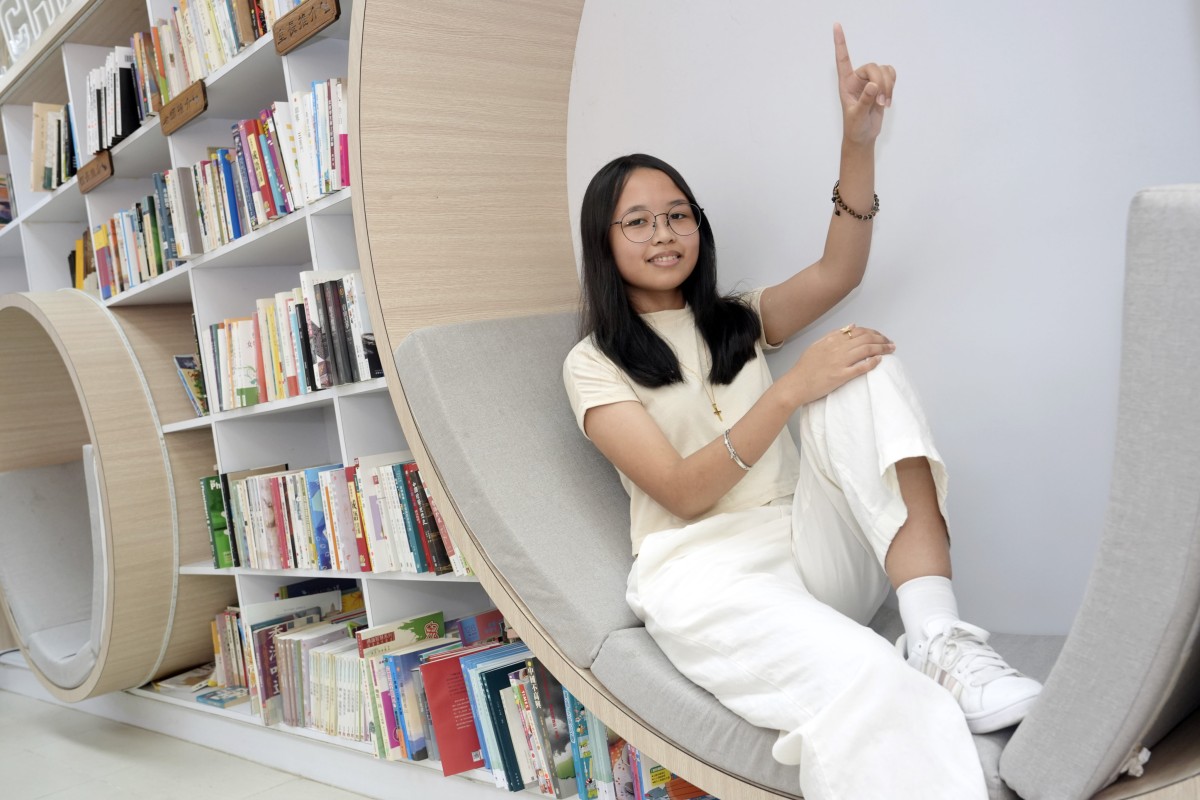
- Angela Cabido Dela Cruz and Scott Norton overcame racism and identity issues to attain strong grades, will pursue biomedicine or nursing degrees
 Filipino Angela Cabido Dela Cruz, 18, born and raised in Hong Kong, achieved a score of 21 for her DSE exams and wants to pursue a local degree. Photo: Sun Yeung
Filipino Angela Cabido Dela Cruz, 18, born and raised in Hong Kong, achieved a score of 21 for her DSE exams and wants to pursue a local degree. Photo: Sun YeungGetting the results for her Diploma of Secondary Education (DSE) exams was a relief for Angela Cabido Dela Cruz, an 18-year-old Filipino born in Hong Kong, who has secured a university place in the city to study biomedicine or nursing.
The student from the Hong Kong Taoist Association The Yuen Yuen Institute No 3 Secondary School in Tseung Kwan O obtained a score of 21 across five subjects and was among hundreds of pupils from ethnic minority groups who took this year’s exams.
“I want to be able to contribute to the world in some way. That way can be either through scientific research for the benefit of the future, or through nursing, taking care of others,” she said.
Wednesday saw about 49,000 day-school and private candidates across Hong Kong receive their results, with 39,300 competing to study at the city’s eight publicly funded universities through the Joint University Programmes Admissions System (Jupas).
Education Bureau figures obtained by the Post in May showed that only one in 10 pupils from ethnic minority backgrounds who took DSE exams in Hong Kong had secured a subsidised place over the past five years.
Among DSE candidates from ethnic minority groups, only 12 per cent secured a government-funded place in the eight public universities, compared with the 25 per cent recorded for students from the majority Chinese population.
DSE 2024: Hong Kong students with special educational needs celebrate exam results
Between 1,094 and 1,245 pupils from ethnic minority groups took the DSE exams annually over the five-year period.
Growing up in a non-Chinese family in a majority Chinese society was challenging for Dela Cruz, who said her family often had to deal with racism.
“One time, I was with my mother and brother at a stationery store. When my brother wanted to buy a toy, one of the staff members said out loud in Chinese, ‘Hey, don’t steal anything!’, then they continued talking among themselves,” she recounted.
“I understood what they were saying and was shocked to hear it.”
Dela Cruz and her family also faced instances of discrimination when looking for a place to rent.
“Once, we were looking for a place to rent in a village in Sai Kung. My mum is a domestic helper and when we asked for the price, the agent we were dealing with said, ‘Don’t bother asking because you can’t afford it’.”
She attained a nine in the GCSE exams after attending her school’s programme for the Chinese-language subject.
“Since I am not from a Chinese background, I had to learn much of the culture and traditions through school,” Dela Cruz said.
DSE 2024: 8 of 10 top scorers hope to study medicine and solve Hong Kong’s doctor shortage
She added that while some schools lumped students together in a class without considering their differing levels of proficiency in Chinese, hers “took care of every student, no matter if you’re a fast or slow learner”.
Dela Cruz said that among friends and family, her mother had exerted the strongest influence in building up her confidence as a person from an ethnic minority group in Hong Kong.
“Even though so many have treated her harshly, she is never afraid to stand up for herself and be confident,” the student said.
“I hope that one day, people can understand each other more, rather than hold negative prejudices against those from different backgrounds.”
Dela Cruz’s 17-year-old schoolmate, Scott Norton, with a mixed British and Chinese background, also expressed surprise at his performance in the DSE exams.
Norton achieved a score of 22 across five subjects – enough to secure an unconditional offer for the nursing programme at Polytechnic University.
Having a Chinese mother meant Norton was introduced to the culture at an early age, which helped his academic progress. He scored a nine in the GCSE and said his fluency in Chinese sometimes “disarms” locals.
However, growing up as a mixed-race person was sometimes complicated, he added.
“British people treat me as Chinese and locals treat me as British. It is just this weird identity crisis I struggled with. Now I’ve learned to love myself for it,” he said.
“I get to experience the best of Chinese and British culture, interact with more people and learn a lot from them too.”
Norton said he had chosen to study nursing after being inspired by videos of combat medics serving in war zones.
“Being a nurse is a one-in-a-million job. Being able to be with patients throughout their journey of recovery and healing is something unique,” he said.
Norton’s mother, Phoebe Vallance, recalled that he had been more inclined towards sports than studies in his earlier years of secondary school.
“But in Form Five, I could see he tried hard to improve himself in his studies,” she said, adding she was proud of his efforts.
“He is a very kindhearted and attentive kid. I will always support him no matter what.”